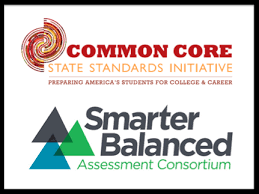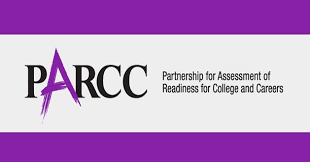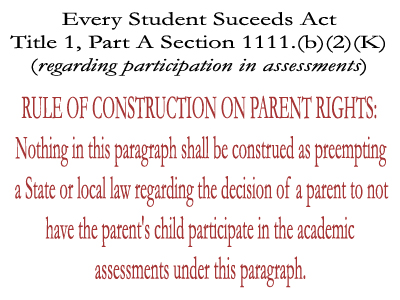It is Springtime in Louisiana, and for teachers, students and parents, that is an indicator that statewide assessment are just around the corner. As many of you know, last year’s assessments were marred by a growing number of parents protesting against the chosen assessment known as PARCC.
 This movement wasn’t, and still isn’t, limited to Louisiana. The resistance to statewide assessment has grown exponentially across the country, largely driven by opposition to the Common Core State Standards (CCSS) and the two primary assessment instruments developed by Partnership for Assessment of Readiness for College and Careers (PARCC) and Smarter Balanced Assessment Consortium (SBAC). Experts in education and psychology have repeatedly gone on the record stating that the CCSS are developmentally inappropriate and assessments produced by PARCC and SBAC are invalid and unreliable.
This movement wasn’t, and still isn’t, limited to Louisiana. The resistance to statewide assessment has grown exponentially across the country, largely driven by opposition to the Common Core State Standards (CCSS) and the two primary assessment instruments developed by Partnership for Assessment of Readiness for College and Careers (PARCC) and Smarter Balanced Assessment Consortium (SBAC). Experts in education and psychology have repeatedly gone on the record stating that the CCSS are developmentally inappropriate and assessments produced by PARCC and SBAC are invalid and unreliable.
In 2014-2015, Louisiana’s chosen assessment was a bit of a quandry. Statements made by Superintendent of Education, John White, made the credibility of the test, questionable. We are a PARRC state. We aren’t a PARCC state. This is a PARCC test. This isn’t a PARCC test. This is a “PARCC-like” test. Statements such as these, coupled with no transparency in the department, lead one to suspect one’s motives. One thing is for certain, these actions certainly helped to fuel the “Opt-Out” movement, and it is safe to say that it was a success, especially in Calcasieu Parish and Central School District.
In the 2015 legislative session, as in years before, there were many efforts to stop CCSS and PARCC in their tracks. The ultimate outcome was what has come to be known as “The Great Compromise,” or HB-373, authored by State Representative, Brett Geymann. In summary, the bill established a procedure by which the Department of Education and BESE would conduct a review of the CCSS and construct a set of academic standards unique to Louisiana. The process would also be subject to the Administrative Procedure Act requiring public posting of the “newly created standards” available for comment, acceptance by both the Senate and House Education committees with ultimate veto power given to the governor. Suffice it to say, the spirit of the compromise has been violated. The review committee was stacked with pro-CCSS members. By their claim, 20% of the standards were revised, moved or deleted. At this time, a team of dedicated advocates are reviewing the “review,” and thus far, have noted the percentage to be much lower, and the changes made; insignificant. The standards are still CCSS, but will be called Louisiana Student Standards.
 The questions that I hear, most often, are…”Why should I opt out my child?” and “Didn’t we get rid of Common Core?” Well, no. We didn’t. Even if the review process described in the previous paragraph had been successful, the CCSS were to stay in place until its completion. In addition to the items listed above regarding the compromise, another bill was couple with the compromise that would prohibit the use of an assessment, during the review year, that contains more than 49% of its questions originating from PARCC. The problem with this provision is that there is no way to verify it. Superintendent White has refused review of the assessment. By all indications, the test being administered in the 2015-2016 school year is identical to the previous year; except, it is being called LEAP 2025. If any one has evidence proving otherwise, please let me know.
The questions that I hear, most often, are…”Why should I opt out my child?” and “Didn’t we get rid of Common Core?” Well, no. We didn’t. Even if the review process described in the previous paragraph had been successful, the CCSS were to stay in place until its completion. In addition to the items listed above regarding the compromise, another bill was couple with the compromise that would prohibit the use of an assessment, during the review year, that contains more than 49% of its questions originating from PARCC. The problem with this provision is that there is no way to verify it. Superintendent White has refused review of the assessment. By all indications, the test being administered in the 2015-2016 school year is identical to the previous year; except, it is being called LEAP 2025. If any one has evidence proving otherwise, please let me know.
Right now, parents across the state are beginning to ask about opting out their child. Some school districts are taking the approach that opt outs are minimal, and if they happen, they happen. Others have taken a proactive approach communicating to their parents that they have the right to opt out. At the time of this writing, it appears that Calcasieu is the only district that has taken the hard line “sit and stare” policy; meaning, if your child is at school, they will get a test, but not forced to take it. If they are not at school, the absence is unexcused. The justification for this policy is that participation in state assessments is mandated by federal law.
Having graduated from college, twice, I consider myself to be fairly intelligent and well read; however, I do not have a degree in Law. I wanted to confirm that my understanding of federal law was accurate, and that participation is not mandated, so I consulted an attorney and a couple of elected officials. This is what they confirmed.
- The Every Student Succeeds Act (ESSA), and it predecessor, the No Child Left Behind Act (NCLB), were essentially inclusion laws designed to insure that states and local districts provide equal access to education to its disabled and impoverished populations. Why? Because in years past, special education students were hidden in a separate building and never saw the light of day.
- The 95% participation mandate is not a mandate on students, or parents to participate, but instead, a mandate that states and local districts make the assessment available to ALL students with the goal of 95% participation. If participation is under 95%, they have to explain why, and it better not be because the special education students are hidden in another building.
- The state and local district must provide a detailed plan to explain how Opt-Outs will be handled in their accountability plan. This can be anything from assigning zeros to printing a disclaimer on the school’s report card stating that a low score is the result of a high number of students not participating, but the Opt-Outs must be accounted for and explained.
Now, the purpose and expectation of NCLB and ESSA are essentially the same as far as participation is concerned; however, in response to the growing opposition to testing, the ESSA has taken an extra step to acknowledge parental rights.

What does this mean? Well, in the absence of state law, it means that you, as a parent, are able to make the ultimate decision to remove your child from state assessments. Not only that, but also in the presence of state law, your decision is supreme.
On January 22, 2016, Diane Ravitch published an interview with David Cleary who serves as Chief of Staff to the author of the ESSA, Lamar Alexander. In the interview, Cleary confirms this statement. (Click Here to read the interview)
In addition to the statements made by Cleary, there has been a number of press releases and public statements made by nationally recognized organizations. Among those, the Council of Chief State School Officers (CCSSO), the American Federation of Teachers (AFT) and the National Education Association (NEA).
On January 11, 2016, the CCSSO released a statement to its members regarding the statutory language of the ESSA. In this statement, they acknowledge the parent’s right to opt out their child in the third section (Click Here to read the statement). Among the members who received this statement is Louisiana’s own, John White. White also, at one time, served as Director of CCSSO. It is also worth noting that current BESE member for District 7, Holly Boffy, is a full-time employee of CCSSO.
I also want to take a minute to recognize that there are teachers who are also parents and also have an objection to the assessments, but fear losing their jobs. Just know that your right to protest is protected as long as you do it while off-duty, and it doesn’t interfere with normal school operations. On its website, the National Education Association acknowledges a parent’s right to opt out and offers suggestions on how to advocate for law and policy addressing it. In addition, the American Federation of Teachers released it own summary of the ESSA, the AFT states:
“ESSA allows parents to opt a student out of required assessments for any reason.” (Click Here to read the statement)
In summary, the clearest point that I want to make is that you, as a parent, have the right to make decisions regarding your child’s education. This right has affirmed and reaffirmed by the United States Supreme Court on many occasions (Click Here for a list of Cases). Do not be bullied, or intimidated, into thinking that federal law requires your child to take the test. If you feel like this is being done, consult an attorney. You will win.

